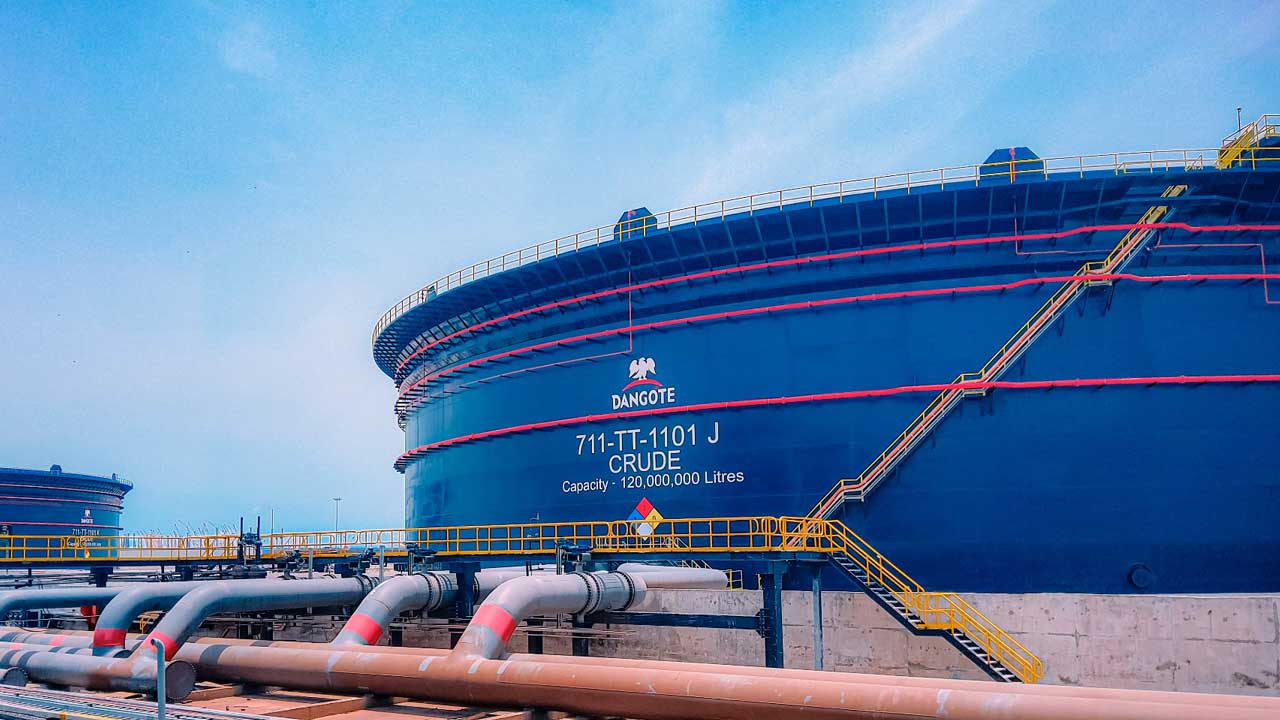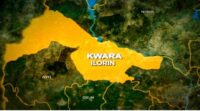•Fears of job, investment losses mount •Scarcity looms as IPMAN, NUPENG, PTD suspend loading
By Adewale Sanyaolu
There are heightened fears among operators in the petroleum downstream value chain over the decision of the Dangote Refinery to commence direct sale of petroleum products to large users, petrol dealers, telecom firms, among others, with free delivery effective August 15.
The marketers expressed concern that Dangote’s new business model could spell doom for the downstream sector through massive job and investment losses.
To support the free delivery and ensure its smooth take-off, Dangote Refinery said it has invested in the procurement of 4,000 brand-new Compressed Natural Gas (CNG)-powered tankers.
It added that the new phase of the programme will continue over an extended timeframe. The refinery, it added, is also investing in Compressed Natural Gas (CNG) stations, commonly referred to as daughter booster stations, supported by a fleet of over 100 CNG tankers across the country to ensure seamless product distribution.
But the National PRO of the Petroleum Products Retail Outlets Owners Association of Nigeria (PETROAN), Mr. Joseph Obele, in reaction to the latest business decision by Dangote Refinery, raised concerns about its forward integration adoption, warning that it could lead to a monopoly in disguise and pose a significant job loss threat to Nigeria.
With a production capacity of 650,000 barrels per day, PETROAN argued that Dangote Refinery should be competing with global refineries and not operating as a distributor in the downstream sector.
“This massive refinery, one of the largest in sub-Saharan Africa, is expected to satisfy domestic fuel demand and export surplus products. PETROAN has previously raised alarms about Dangote’s intentions to dominate the downstream sector, citing concerns that the company may leverage its market power to fix prices, limit competition, and exploit consumers, much like it has done in other sectors.”
PETROAN further warned that Dangote’s tactics may include a pricing penetration strategy, where they plan to reduce prices to capture market share, with the ultimate goal of forcing other filling station operators to quit the market.
This, it said, could lead to a massive shutdown of filling stations across Nigeria, resulting in widespread job losses.
The association further lamented that the introduction of 4,000 brand-new Compressed Natural Gas (CNG)-powered tankers by Dangote Refinery poses a significant threat to the livelihoods of thousands of truck drivers and owners.
“While CNG trucks may offer a lower cost of transporting petroleum products,” the association posited, “this shift could lead to widespread job losses in the industry.”
PETROAN maintained that the adoption of forward integration by Dangote Refinery will greatly affect various stakeholders, including modular refineries, as their operations and market share may be threatened by Dangote’s dominance.
On the impact for truck owners, PETROAN added that job losses and reduced business opportunities may occur due to Dangote’s direct supply and CNG-powered tankers.
“Many filling station operators may be forced to shut down due to Dangote’s pricing penetration strategy and dominance.
Local suppliers of petroleum products’ businesses may be negatively impacted by Dangote’s direct supply to end-users.
Telecom diesel suppliers’ operations and market share may be threatened by Dangote’s dominance.
It is obvious that Dangote plans to gain full monopoly of the downstream sector, which would enable the company to exploit Nigeria’s petroleum consumers. This could lead to higher prices, reduced competition, and decreased economic efficiency.”
National President of PETROAN, Mr. Billy Gillis Harry, has, however, called on the Executive Director of the Nigerian Midstream and Downstream Petroleum Regulatory Authority (NMDPRA) and the Minister of State for Petroleum to put in place price control mechanisms to prevent any form of monopoly.
Harry emphasised that competition should always be encouraged to protect consumers and promote economic efficiency.
Meanwhile, the Independent Petroleum Marketers Association of Nigeria (IPMAN) has directed that its members should not send their trucks to load petroleum products on the Lekki-Epe corridor from yesterday due to the envisaged and possible intimidation and harassment that may arise as a result of the extreme determination and desperation of the Lagos State Ministry of Transportation to commence the implementation of the ill-conceived and exploitative E-Call Up system.
A statement by the IPMAN Zonal Chairman, Mr. Bashorun Akanni, advised all IPMAN members to withdraw their depot representatives and truck drivers from the Lekki-Epe corridor by Monday.
Similarly, the NUPENG PTD has equally initiated a strike action over what it described as harassment of truck drivers by the task force around the Dangote Refinery/Ibeju axis.
As a result, it said all truck loading activities and movement are currently suspended in Lagos and environs until further notice.
















Leave a comment